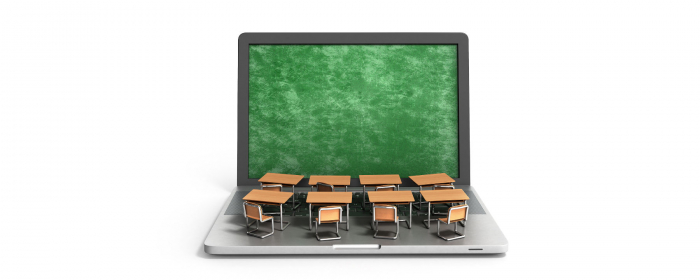Many universities have moved classes online, with little to no time for planning and preparation, in an attempt to slow COVID-19 transmission. While technological teaching aids such as videoconferencing are readily available, many challenging pedagogical issues still need to be addressed, particularly regarding the best way to educate undergraduates in online science courses. Our institution, Touro College, has two decades of experience in online education, and we would like to share some of the lessons that we have learned.
Avoiding a boring lecture
Undergraduate students engage better with interactive lectures than with an hour-long live feed of a professor speaking. We recommend limiting online lectures to 10–15 minutes, interspaced with brief question-and-answer periods; short educational videos relevant to the day’s topic; and 10-minute inquiry tasks such as uncovering recent research developments in a research area (conducted by small groups in Zoom breakout rooms or Google hangouts, or working alone), followed by students’ presentation of their findings to the full class.
We have found that using videoconferencing to interact with students in classes with fewer than 10 students is highly effective for many faculty members but that online instruction requires more work for larger courses. Small group work is an excellent tool for engaging students in larger courses. Polls, surveys, and the chat function of Zoom also facilitate student participation. TAs can help by responding to some of the questions in the chat window and directing key questions to professors for them to address.
Taking labs virtual
Laboratory classes, which usually revolve around hands-on learning, are a particular challenge to conduct online, but they can be done with some modifications to the curricula. The genetics-immunology lab taught by one of us (J.L.) provides an example.
This semester’s course began with normal classroom lab instruction, in which students learned how to maintain mouse microglial cells in culture, assess cell proliferation and cell viability, and run PCR protocols, SDS protein gels, and phagocytosis assays. The remainder of course, now being conducted online, has been redesigned to achieve three other objectives that are critical to any science lab:
1.Learn how to review the literature and critically read peer-reviewed journals.
2.Learn how to design and plan scientific experiments using control and experimental components.
3.Learn how to analyze actual experimental data.
Working in pairs, students will use their understanding of the assays and techniques they have already learned to propose new experiments using brain microglial cells. Already, one set of students proposed examining the effects of focused ultrasound on the rate of microglial cell proliferation, viability, phagocytosis, and protein production. This is an interesting proposed project because focused ultrasound appears to boost the immune system when used in cancer treatments. Another group of students proposed examining the effects of caffeine on microglia based on the observations that the drug slows cell division time and affects the immune system and epigenetic regulation.
In a normal semester, there is rarely the time to teach students how to critically read scientific papers, but an online lab course can do just that. J.L. teaches students how to search The Scientist’s website and Nature’s News & Views section to gain a better understanding of new scientific discoveries before reading the actual science paper. Teaching students how to use NIH’s RePORTER database of grants allows them to try to creatively come up with future experiments and compare their ideas with what NIH recipients proposed in their funded applications. In addition, having students review a paper that the professor published and then ask questions can provide students with deeper insight into the processes of scientific inquiry and publication. Professors can also share actual data generated in their laboratories for students to analyze and review.
All in-person classes throughout our college moved online on March 10, and so far, students have indicated through online town hall meetings with deans that they are pleased with the school’s approach to online science courses and laboratory pedagogy. As we all break ground on new ways of teaching students, it is important to engage them in this process by encouraging their feedback on the success of online science courses and labs and how we can improve them.
We hope that the temporary transition of undergraduate education to an online format will help reduce the spread of COVID-19. In the long run, successfully adopting innovative ways to facilitate learning will be invaluable for science education.
John D. Loike is a professor of biology at Touro College and University Systems and writes a regular column on bioethics for The Scientist.
The Scientist
More about: #onlinelessons
















































